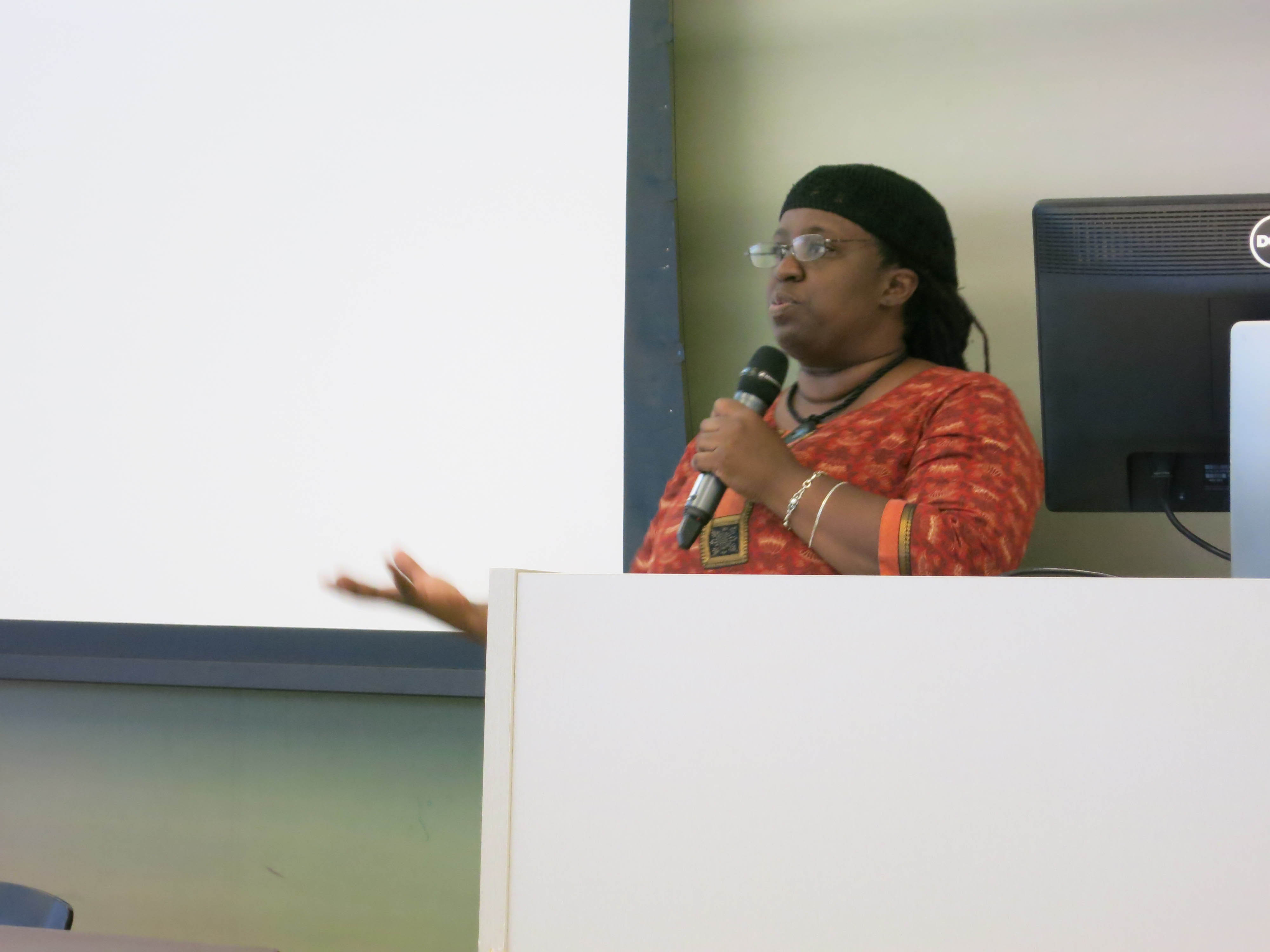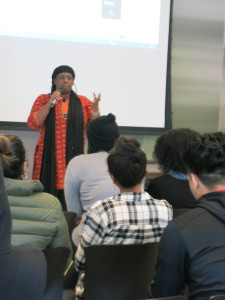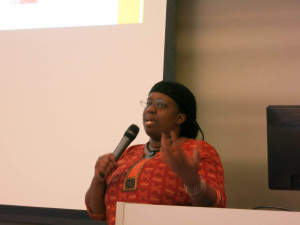Jacqui Patterson at John Jay College

by Nyasha Laing
On Wednesday, September 30, the Program in Sustainability and Environmental Justice, the Africana Studies department and the Gender Studies program welcomed Jacqueline Patterson, Director of Environmental and Climate Justice at the NAACP to John Jay as part of the Sustainability and Environmental Justice speaker series. Ms. Patterson’s talk was framed by the 2015 COP 21 Climate Change Negotiations. It drew attention to climate change impacts occurring around the globe (such as storms, droughts, fires & food insecurity, and sea-level rise). These impacts, Ms. Patterson urged, give communities in the U.S. and around the world a “common cause” and unite them in the need for organized action. Climate activists, said Ms. Patterson, have an important role to play in the geopolitical debate and can raise important social, economic, and cultural issues in negotiations relating to the reduction of emissions and access to energy.
The other half of the equation, Ms. Patterson noted, is the “common but differentiated” responsibility of developed nations such as the United States for anthropogenic climate change. In the U.S., four percent of the world’s population contribute to twenty-five percent of the world’s CO2 emissions. She broadly addressed the impacts of climate change on persons of color, women, indigenous persons, and other vulnerable populations, highlighting environmental disasters, toxic waste, transportation and housing infrastructure as key public health and policy challenges for communities, policy makers and activists. Ms. Patterson explained that climate change is also a global migration problem that is causing the loss of entire homelands and habitats and the relocation of displaced persons, as well as a crisis shaped by trade imbalances and increasing inequality around the world.
Ms. Patterson highlighted climate change education as an imperative and encouraged students with a variety of academic interests to pursue careers related to climate change and environmental protection. Jacqueline Patterson, MSW, MPH, has worked on international and domestic issues including gender, racial, economic, environmental and climate justice. She began her work in environmental justice as a Peace Corps volunteer in Jamaica.

